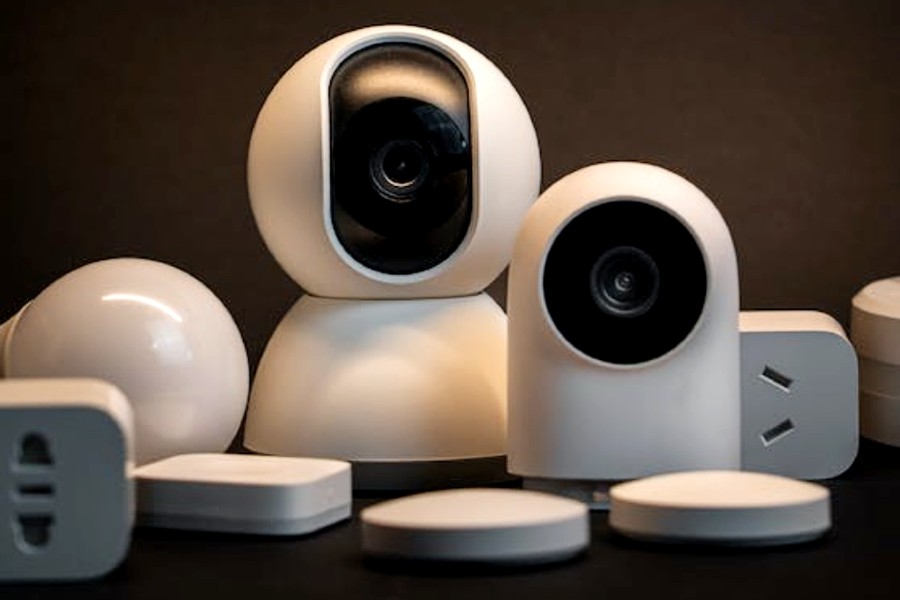
The evolution of security cameras has reshaped how businesses and individuals protect their assets and monitor their environments.
Traditional surveillance systems have transitioned into intelligent solutions powered by artificial intelligence (AI), enabling more proactive and precise security measures. As we navigate this era of technological transformation, AI-driven security cameras are proving to be essential tools in modern surveillance strategies.
From Passive Monitoring to Intelligent Surveillance
In the past, security cameras served as passive tools for recording events, relying heavily on human operators to interpret footage and detect irregularities. While effective to an extent, this approach was limited by human error and time constraints. AI has revolutionized this process by transforming security cameras into active participants in monitoring environments.
AI-powered systems can analyze live video feeds in real time, identifying anomalies such as unauthorized access, suspicious movements, or unaccompanied items. These capabilities not only enhance security but also reduce the burden on human operators, allowing them to focus on high-priority tasks.
Features That Define AI-Driven Security Cameras
Modern AI-enabled security cameras come equipped with features that make them indispensable for businesses and organizations. These include:
- Facial Recognition: Advanced cameras can recognize and categorize individuals based on their facial features, allowing businesses to differentiate between authorized personnel and potential intruders.
- Object Detection: AI algorithms can identify specific objects, such as vehicles, bags, or tools, and issue alerts if these objects appear in restricted areas.
- Behavior Analysis: Intelligent cameras can detect unusual behaviors, such as loitering or rapid movements, which may indicate potential security threats.
- License Plate Recognition (LPR): This feature is particularly useful for monitoring vehicle access to facilities, enhancing security for parking lots and restricted zones.
These innovations enable businesses to respond swiftly to security concerns, minimizing risks and ensuring a safer environment.
Benefits of AI-Powered Security Cameras
AI-powered security cameras offer a host of benefits that extend beyond traditional surveillance capabilities. These advantages include:
- Proactive Threat Detection: By analyzing patterns and identifying potential risks, AI systems can issue warnings before incidents occur. This proactive approach significantly reduces response times and potential damage.
- Scalability: Businesses with multiple locations can integrate AI cameras across their sites, managing them from a central system for consistent security standards.
- Data-Driven Insights: AI systems collect and analyze vast amounts of data, providing actionable insights that can inform security strategies and operational improvements.
- Cost Efficiency: Automating surveillance tasks reduces the need for extensive human intervention, leading to long-term cost savings.
Applications Across Industries
AI-powered security cameras have applications in virtually every industry. For example:
- Retail: These systems help monitor customer behavior, prevent theft, and optimize store layouts for better traffic flow.
- Healthcare: AI cameras ensure compliance with hygiene standards, monitor patient safety, and secure sensitive areas.
- Manufacturing: In industrial settings, AI systems detect safety hazards and monitor compliance with safety protocols.
- Education: Schools and universities use AI cameras to enhance campus safety and monitor access to restricted areas.
Complex Security Solutions recognizes the importance of tailored surveillance solutions that align with the unique needs of various industries, ensuring comprehensive protection.
The Role of AI in Enhancing Privacy
While AI-powered cameras are a boon for security, concerns about privacy often arise. Businesses must strike a balance between robust surveillance and respecting individuals’ privacy rights. AI can help achieve this balance through:
- Privacy Masking: Cameras can blur or obscure areas not relevant to security, such as private offices or residential spaces.
- Data Encryption: Ensuring that all recorded footage is securely stored and accessible only to authorized personnel minimizes the risk of data breaches.
- Compliance with Regulations: AI systems can be programmed to adhere to local and international privacy laws, ensuring ethical surveillance practices.
Integration with Other Security Systems
The integration of security cameras with other security measures, such as access control and alarm systems, creates a unified security network. For instance, an AI camera can trigger an alert to an access control system when it detects unauthorized entry, ensuring immediate action. This synergy enhances the overall effectiveness of security strategies.
Overcoming Challenges in AI Surveillance
Despite their advantages, AI-powered security cameras face challenges such as:
- False Positives: While AI systems are highly accurate, they may occasionally misinterpret harmless actions as threats. Continuous system updates and machine learning refinements can mitigate this issue.
- High Initial Costs: The upfront investment in AI-powered cameras and supporting infrastructure can be significant. However, the long-term benefits often outweigh the initial costs.
- Cybersecurity Risks: As with any connected system, AI cameras are vulnerable to cyberattacks. Robust encryption and regular security updates are essential to mitigate these risks.
The Future of AI-Driven Security Cameras
The future of AI-powered security cameras is bright, with advancements on the horizon promising even greater capabilities. Some emerging trends include:
- Edge Computing: Instead of relying on centralized servers, cameras will process data locally, reducing latency and improving performance.
- Enhanced Analytics: Future systems will integrate deeper analytics, such as sentiment detection, to assess the emotional states of individuals for more nuanced security measures.
- Energy Efficiency: AI cameras will incorporate energy-efficient technologies, making them more sustainable and cost-effective.
- Greater Interconnectivity: With the growth of the Internet of Things (IoT), security cameras will interact seamlessly with other smart devices, creating fully automated security ecosystems.
Conclusion
AI-driven security cameras represent a paradigm shift in modern surveillance, offering unparalleled capabilities for proactive threat detection, scalability, and operational efficiency. As businesses adopt these intelligent systems, they must also prioritize privacy, cybersecurity, and integration to maximize their effectiveness.
Complex Security Solutions is dedicated to helping businesses navigate the complexities of modern surveillance. By leveraging the latest AI-powered technologies, organizations can achieve robust security while adapting to an ever-changing threat landscape.
This new age of surveillance is defined by intelligence and innovation, empowering businesses to protect their assets and create safer environments. By embracing AI in security cameras, the future of surveillance is not just more secure—it’s smarter.
Latest Posts
- AI’s Creative Takeover: Copyright Chaos From Harlem To Harare
- GHCC Celebrates Phylicia Rashad At Year-End Gala In Harlem Hotel
- Sponsored Love: DTF Printing After Washing Color Depth Analysis And Solution
- Effective Ways To Grow Your Threads Followers
- Earthy Sophistication: Why Earth Tone Tuxedo Suits Are A Must-Have
Become a Harlem Insider!
By submitting this form, you are consenting to receive marketing emails from: . You can revoke your consent to receive emails at any time by using the SafeUnsubscribe® link, found at the bottom of every email. Emails are serviced by Constant Contact








